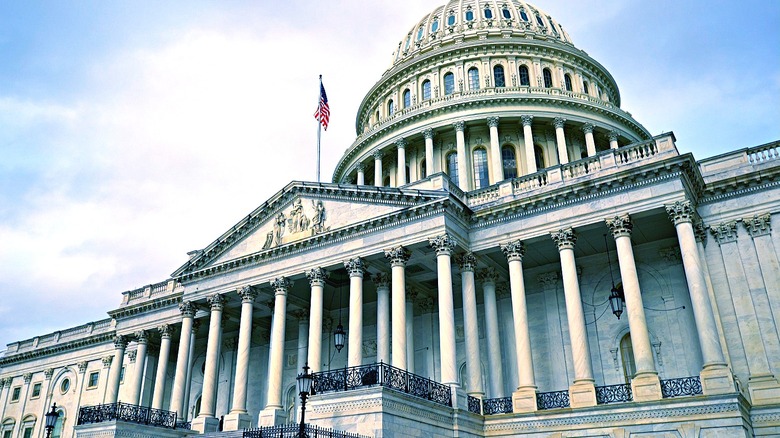What The House Passing The Social Security Fairness Act Means For Seniors
For many, the reality of retirement may not match retirement dreams and plans from earlier stages of life. While some retirees may have the savings and income to debate if they should retire in an affordable but cultured European city or one of the five best states to retire in, other seniors collecting reduced benefits might be glued to the progress of a make-or-break Social Security reform bill as it all-too-slowly makes its way through Congress.
The U.S. House of Representatives overwhelmingly passed the bipartisan Social Security Fairness Act (H.R.82 – Social Security Fairness Act of 2023) on November 12, 2024, with a vote of 327 to 75. This new bill can significantly impact Social Security benefits on the whole, and specifically impact the amount of Social Security benefits collected by many public-sector workers and their spouses.
The amount of bipartisan support for this bill in the House is significant, especially in terms of crafting effective legislation if the U.S. Senate also passes the bill. However, time is running out for the bill to be brought to the Senate floor by its January 3 end of term. The financial fate of millions hangs in the balance, and whether the Senate will heed the Social Security reform push from the House and senior advocacy groups — or let the bill die – remains to be seen.
Who this bill affects most
The "fairness" in the Social Security Fairness Act implies the unfairness 2.8 million public sector workers have endured for years: collecting reduced or restricted Social Security benefits despite working and essentially paying into the system. Two federal policies make this reduction for retirees and disabled workers possible, and legal: the Windfall Elimination Provision (WEP) and the Government Pension Offset (GPO). Both measures were initially designed to make sure public-sector employees like teachers, firefighters, and police officers already collecting a public pension not covered by Social Security wouldn't be overpaid Social Security retirement benefits, as well.
However, these provisions were first enacted in 1983, and seem shortsighted when it comes to how livable a public worker's pension is expected to be, as well as negligent of the fact that people work covered and noncovered jobs throughout their lifetimes, rather than one job from start of working years until retirement age. The Social Security Fairness Act aims to repeal these provisions, and restore the full amount of Social Security benefits affected workers, their spouses, and survivors are entitled to, should the provisions not be in place.
Those most profoundly affected by this change are not likely to be wealthy individuals collecting more free money, so to speak. Rather, the aim of the Social Security Fairness Act seems to be to restore full benefits to lower-income workers who rely on Social Security earned from prior work earnings as their primary source of income replacement in retirement.
Why bipartisan support in the House is important
The overwhelming bipartisan support in the House is important for the Social Security Fairness Act because of the bill's projected cost. The price of restoring benefits for public workers isn't small, even if it is fair. Co-authors, U.S. Reps. Abigail Spanberger (D-VA) and Garret Graves (R-LA), said in a November 13, 2024 statement: "For more than 40 years, the Social Security trust funds have been artificially propped up by stolen benefits that millions of Americans paid for and that their families deserve."
Of course, many are nervous about the future of Social Security, and how adjusting for an additional, if rightful, $190 billion in benefits (and federal deficits) over a 10-year period will affect Social Security trust funds, previously projected to be solvent until 2035.
Despite this looming cost, the House's bipartisan support of the bill, even in the face of far-right House Freedom Caucus members U.S. Rep. Bob Good (R-VA) and Andy Harris (R-MD), who broke pro forma protocol in a last-minute attempt to block it, proves promising. The bill has 62 co-sponsors in the Senate, enough for a simple majority to pass the bill, but only if brought to the floor for a vote. Supporters are putting heat on the Senate to do just that, and prioritize a vote. If no vote happens by end of term, the bill will die, thus causing a long, slow, uncertain slog back to the drawing board for Social Security reform.


